Towards Women’s Economic Empowerment in Mali
One Woman’s Journey to Improve the Lives of Rural Women
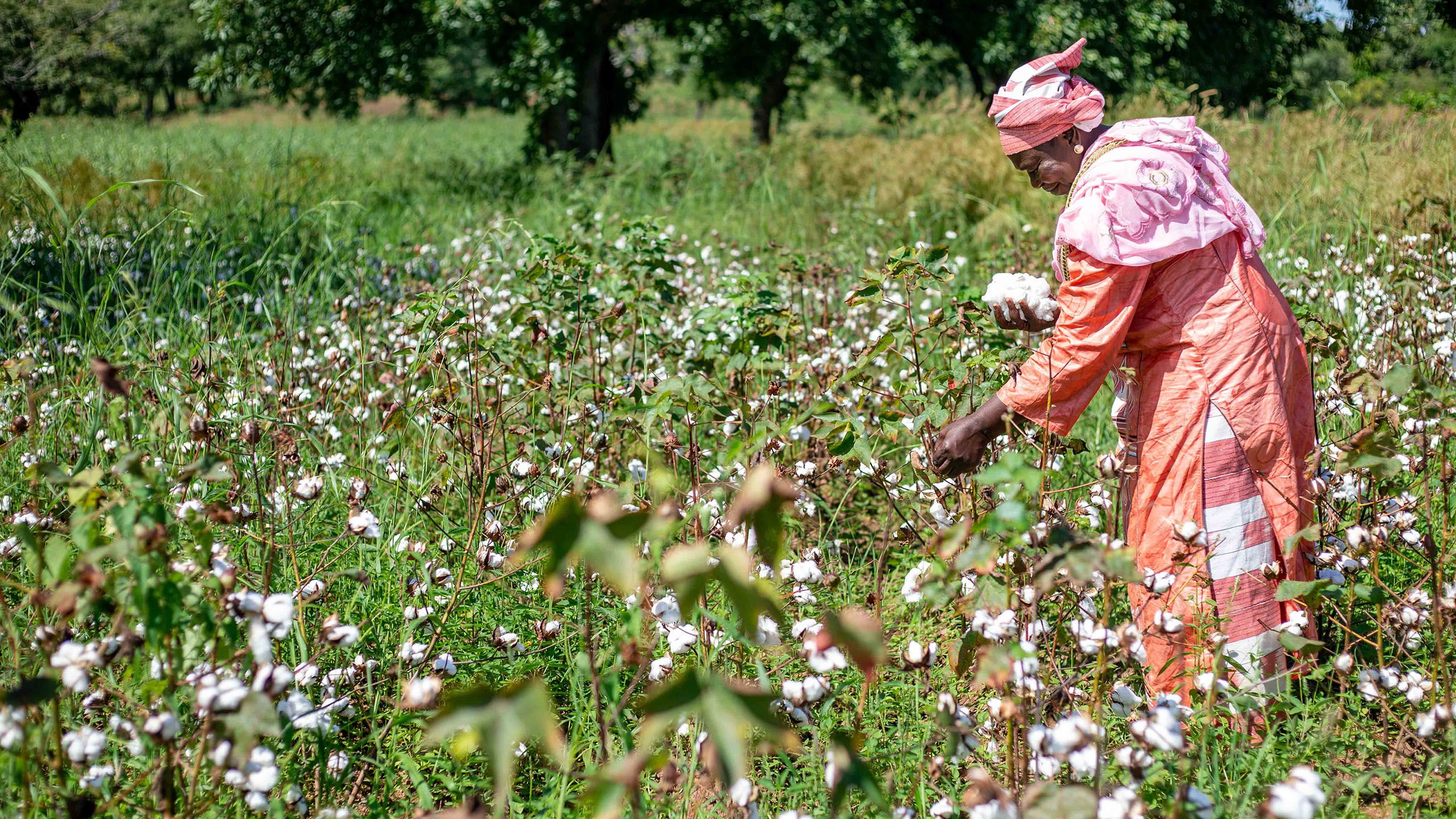
Born in Koutiala, Mali’s cotton production heartland, agronomist Tata Djire has always been fascinated by cotton farming and rural life, and she wanted to make a difference from an early age. She has spent her career supporting smallholder farmers and women in rural Mali, helping to make her native country one of the first four countries globally to produce Better Cotton (along with Brazil, India and Pakistan, in the 2010-11 cotton season). Here, we explore her journey to improving rural women’s lives and promoting women’s economic empowerment.
“My choice to become an agronomist was guided by a passion to help smallholder farmers in the cotton sector, especially women. Cotton is a real source of pride in my region, but farmers face many challenges in raising their yields, from irregular rain to poor soil health, high input costs and unstable cotton prices. Also, women have typically had no say in the sector, from the fields all the way up to the cooperatives, despite playing an important role in cotton production.”
Tata studied agronomy at the l’Institut Polytechnique Rural in Katibougou, becoming one of the first women in Mali to graduate from the institute in 1979. It was in her final year of studies that Tata undertook an internship with the Compagnie Malienne pour le Développement des Textiles (CDMT), an established organisation supporting cotton farmers across Mali. Inspired by the experience she gained in the field, Tata joined CDMT in 1980 after finishing her degree, and was to stay with them for nearly three decades.
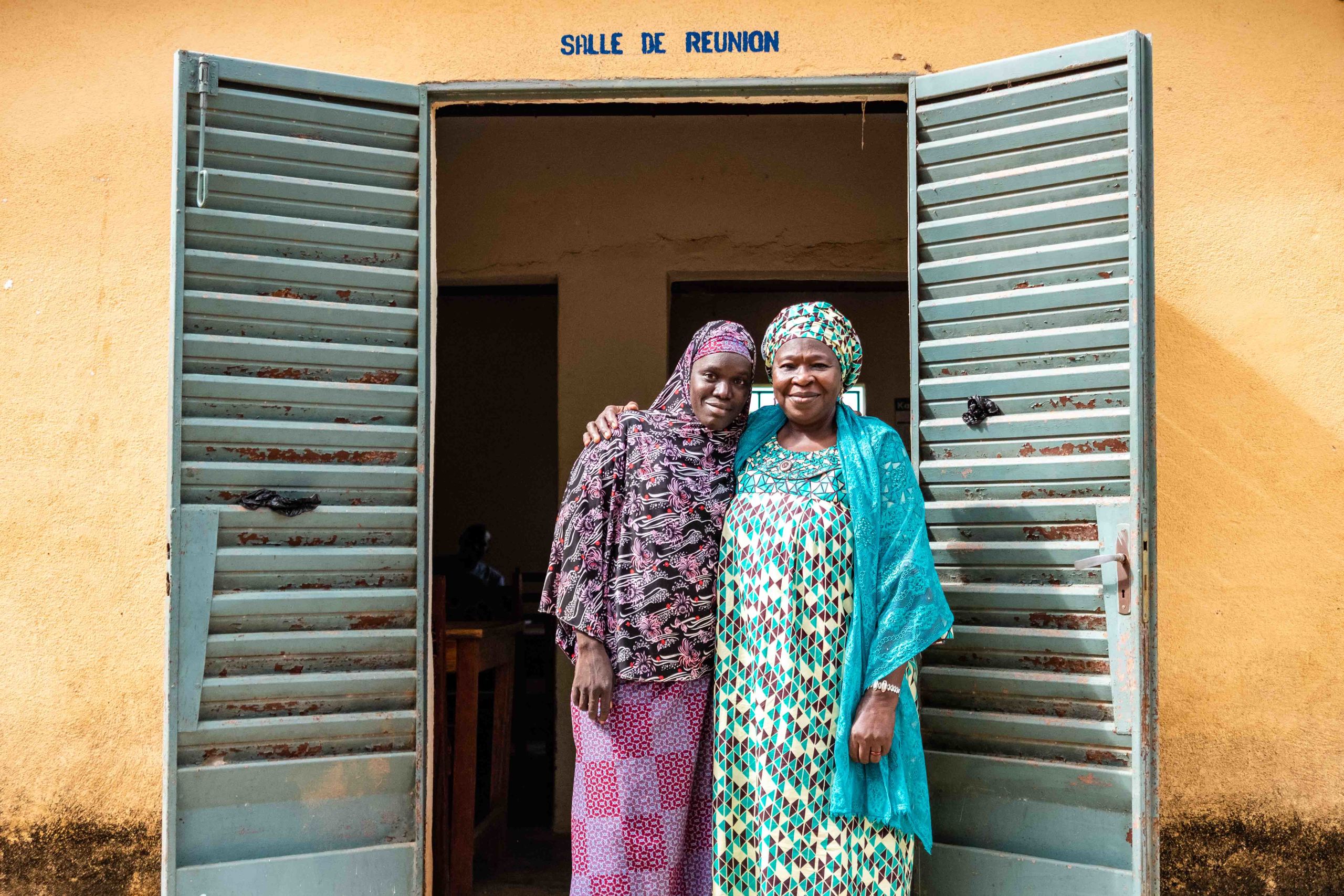
Tata Djire with a female Field Facilitator (someone responsible for training Better Cotton Farmers). © Better Cotton/Nicholas Adatsi
Tata Djire with a female Field Facilitator (someone responsible for training Better Cotton Farmers). © Better Cotton/Nicholas Adatsi
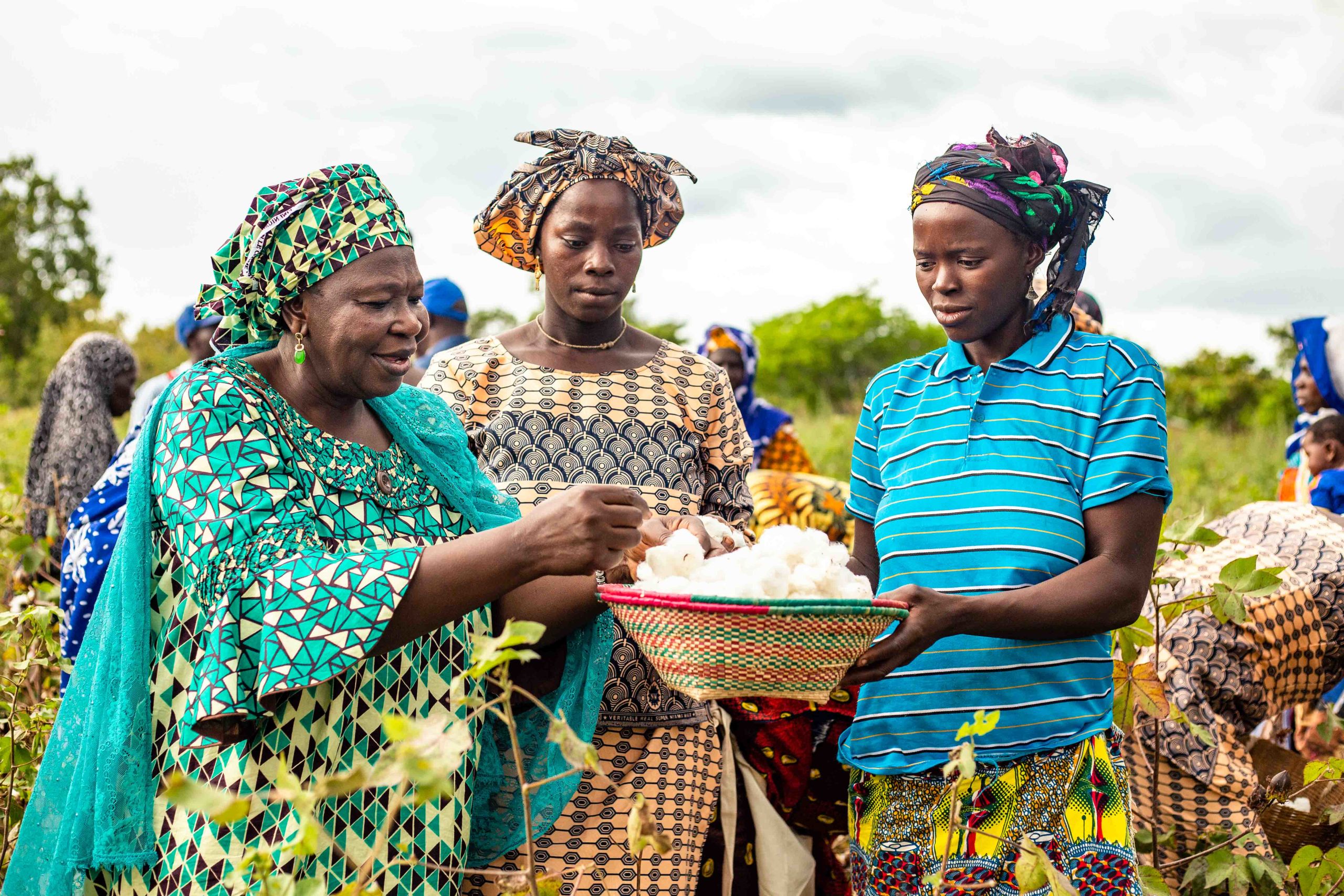
Tata Djire training women in the cotton community. © Better Cotton/Nicholas Adatsi
Tata Djire training women in the cotton community. © Better Cotton/Nicholas Adatsi
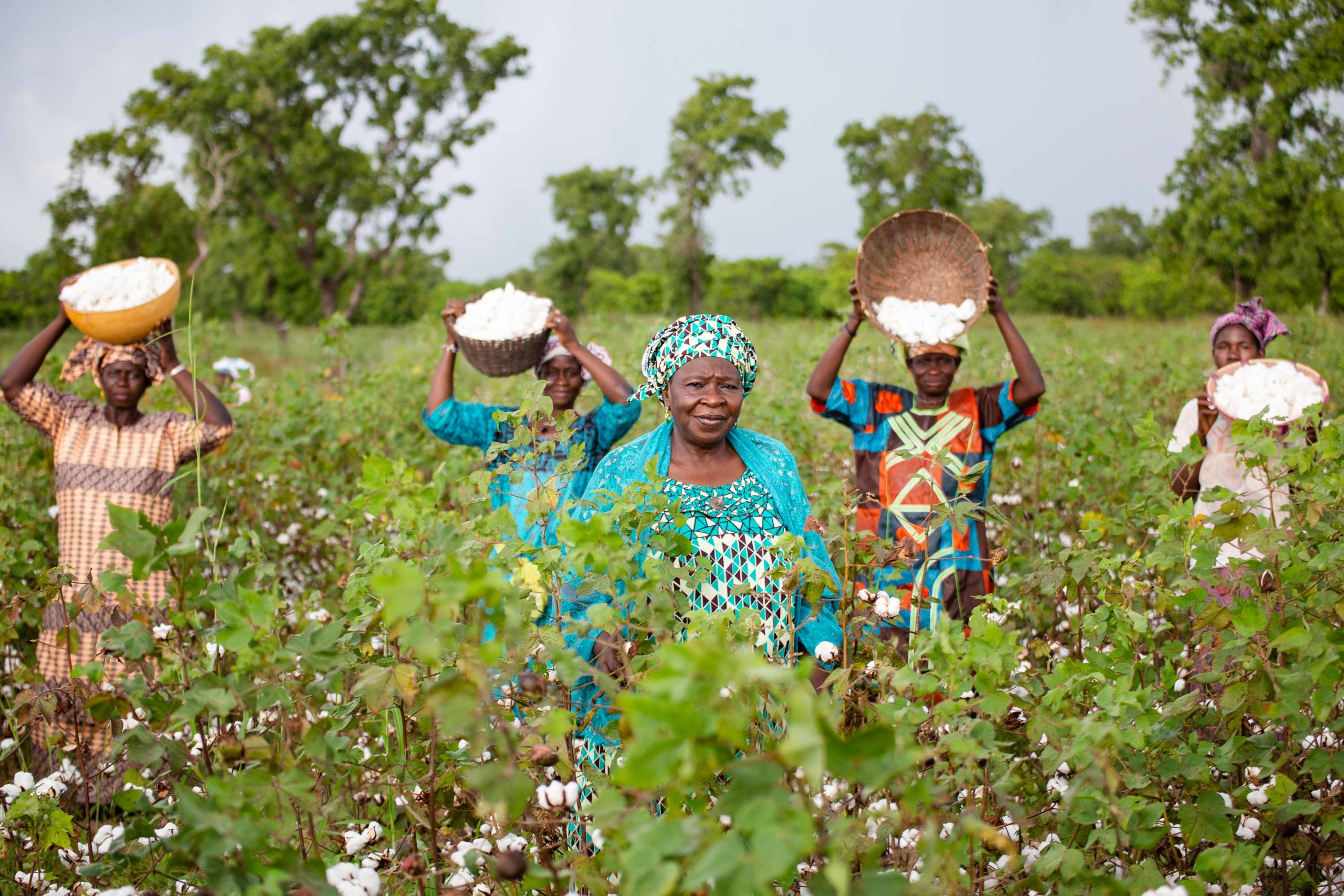
Tata Djire with people in the cotton community. © Better Cotton/Nicholas Adatsi
Tata Djire with people in the cotton community. © Better Cotton/Nicholas Adatsi
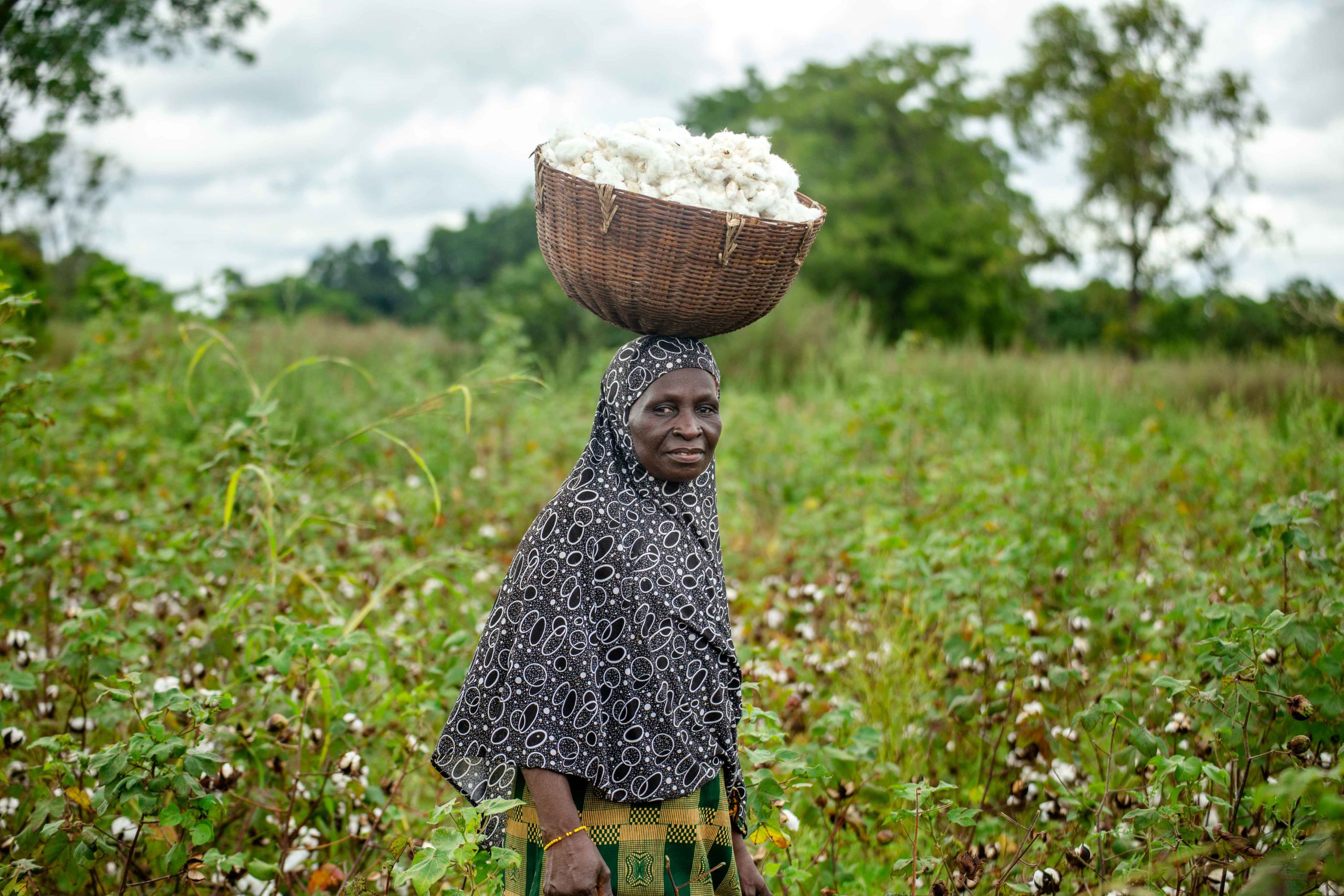
Better Cotton Farmer Sitan Diakite. © Better Cotton/Nicholas Adatsi
Better Cotton Farmer Sitan Diakite. © Better Cotton/Nicholas Adatsi
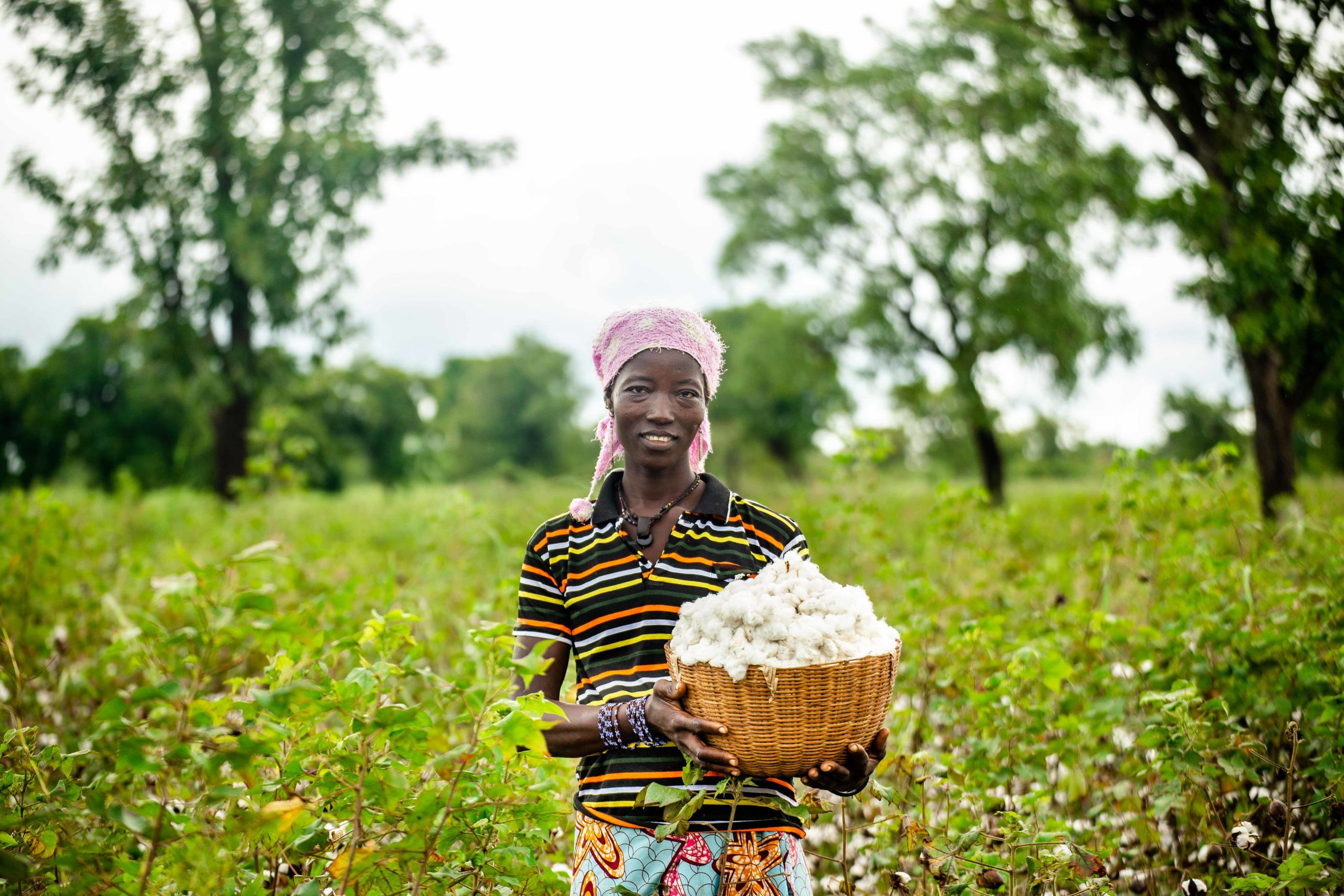
Farm worker Djeneba Kone. © Better Cotton/Nicholas Adatsi
Farm worker Djeneba Kone. © Better Cotton/Nicholas Adatsi
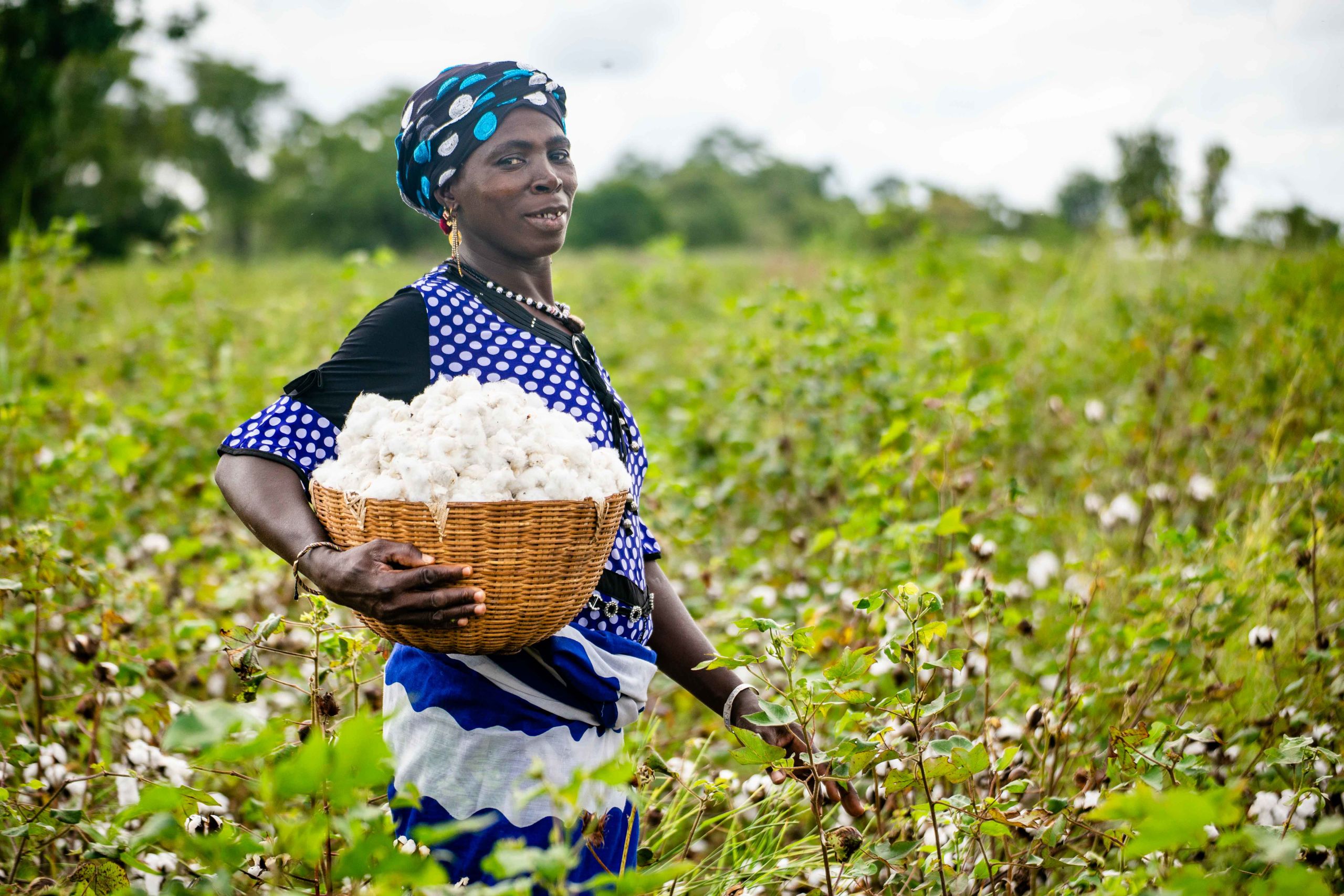
Better Cotton farm worker. © Better Cotton/Nicholas Adatsi
Better Cotton farm worker. © Better Cotton/Nicholas Adatsi
“Once I gained my degree, I developed a programme to serve and support rural women, and spent time visiting women and staying with them in their villages to understand their needs and challenges.”
At first, the programme focused on maternal and infant health, and increasingly on women’s economic empowerment, which Tata and her CDMT colleagues saw as essential to improving gender equality in Mali’s traditionally patriarchal cotton farming villages. Overcoming entrenched cultural norms and helping women to become more financially independent was a tough challenge, but Tata remained undeterred.
During her time with CDMT, Tata supported women in cotton producing communities by organising trainings on literacy and professional skills, and helping women to develop and gain financing to fund their own revenue-generating activities (cultivating diverse crops, for example). She also helped to found women’s groups to help women farmers build experience in defending their own interests and founded an annual competition for women producers to demonstrate their success as farmers.
As she gained respect and experience, Tata was promoted to Head of Training, becoming the only woman at a senior level within CDMT, and tasked with developing training programmes for on-the-ground CDMT trainers, all of whom were men.
In 2010, she joined the Association des Producteurs de Coton Africains (APROCA), a cotton farming organisation overseeing 15 cotton growing countries in West Africa, including Mali. It was there that she became one of the association’s first Better Cotton Coordinators, introducing the Better Cotton programme in Mali for the first time. Once again, Tata was the only woman in the team charged with organising Better Cotton’s first pilot phase, alongside her former colleagues at CDMT.
“Being a woman leader has been a challenge throughout my life, but it has never stopped me from moving forward. My days as a student on a male-dominated course gave me strength, and my family has helped me a lot in my professional journey, never holding me back from undertaking multiple assignments around the country.”
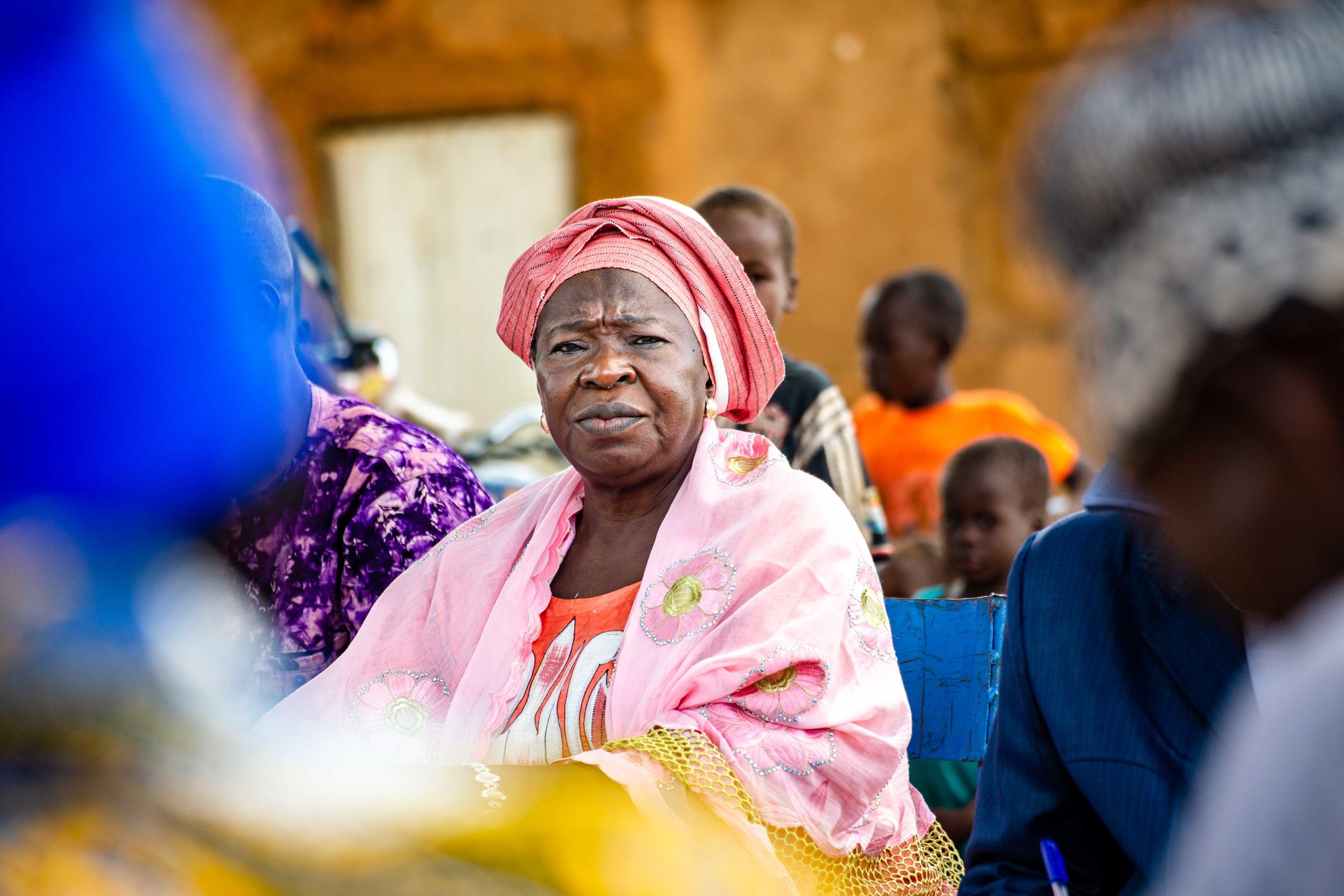
Gradually, the Better Cotton programme in Mali expanded, and Tata oversaw the training of more and more Better Cotton Farmers, gradually gaining their trust and respect.
“The key aspects of Better Cotton that motivated me were those relating to protecting the environment through reducing the use of pesticides, and also Decent Work, which has always been one of my main concerns. When the Better Cotton programme began, we did a lot of training and awareness-raising, largely directed at male farmers, since they were the ones who managed the farms. It wasn’t easy to convince farmers to change their ways, but my understanding of their challenges and their language was a real advantage.”
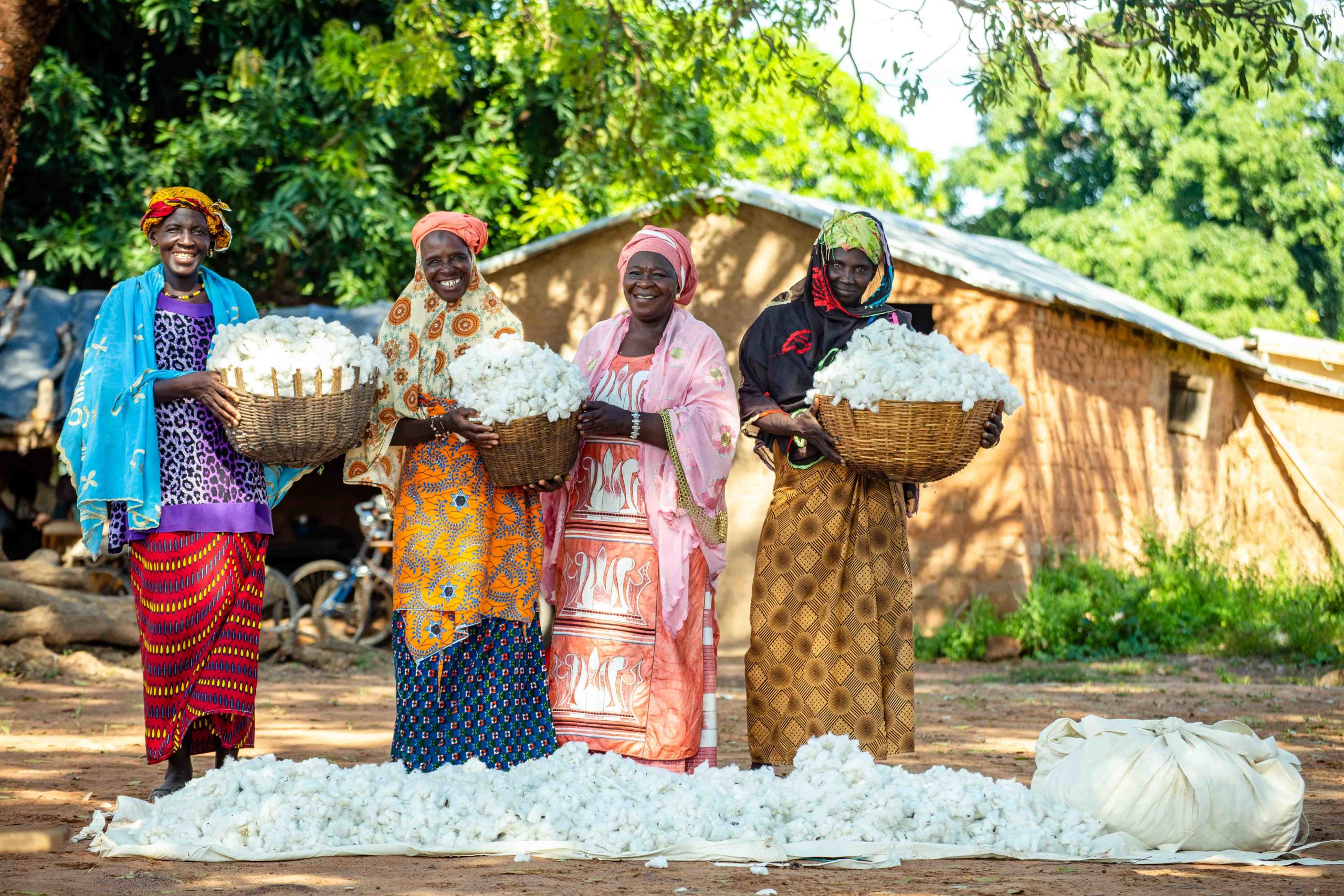
Tata Djire with cotton community members. © Better Cotton/Nicholas Adatsi
Tata Djire with cotton community members. © Better Cotton/Nicholas Adatsi
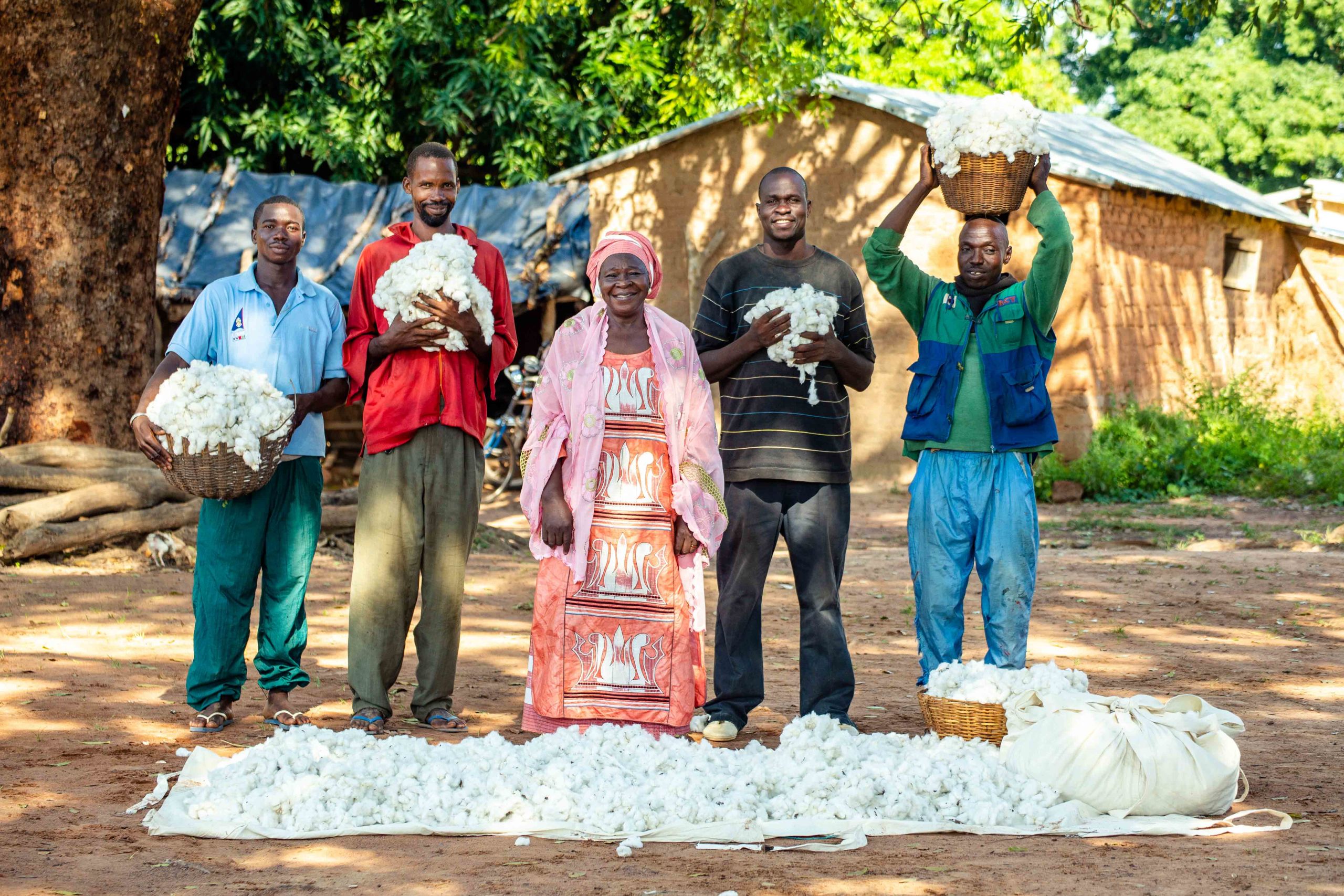
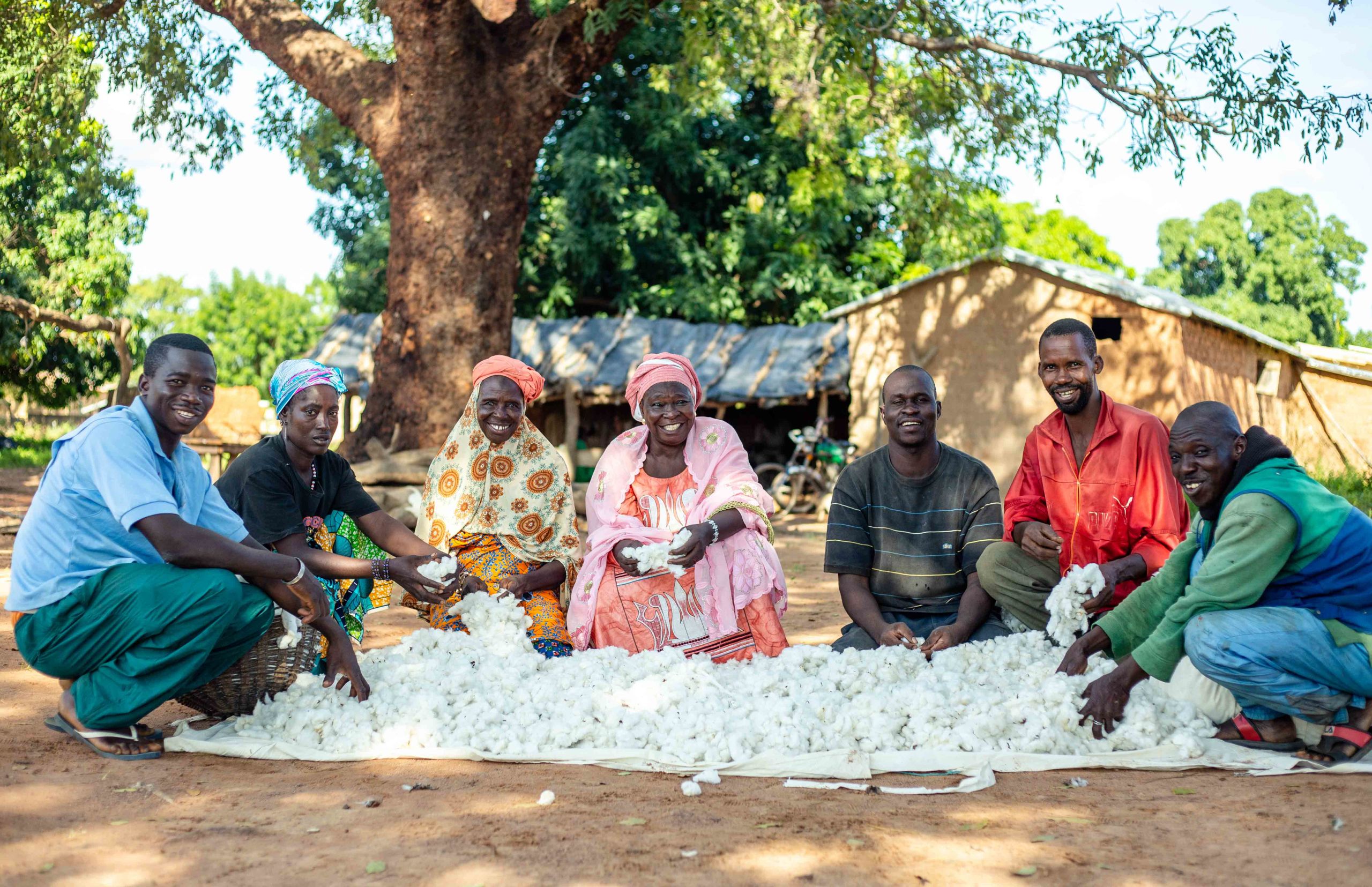
Tata helped farmers to understand how adopting practices in line with the Better Cotton Principles and Criteria — the blueprint for Better Cotton production — could help them to raise their yields and reduce their costs. In particular, becoming a Better Cotton Coordinator gave her a significant opportunity to build on her life’s passion – supporting women farmers and rural women.
“Through Better Cotton, we have supported women farmers in multiple ways – from more efficient harvesting techniques to raising their awareness of the importance of equal pay through special role play sketches for radio and television. We have also trained more than 2,000 women in leadership, which has given rise to the emergence of women leaders capable of promoting the interests of women in the cotton sector.”
However, there is still much progress to be made in changing perceptions among Mali’s cotton farming communities and in helping women to achieve economic independence.
“Cultural change takes time, but the shifts in mentalities among certain people I’ve seen over the past 20 years is one of the things I’m most proud of. I’m so happy to hear women discussing their achievements in being paid according to their skills and their contribution, and equally with men.”
A Word from Better Cotton
Tata Djire is soon to retire, after dedicating ten years to ensure that the Better Cotton Programme became a success at field-level and to a lifetime’s work supporting smallholders and women in rural Mali. Thank you, Tata, from all of us at the Better Cotton Initiative.
Find out more about Better Cotton's work in Mali here.